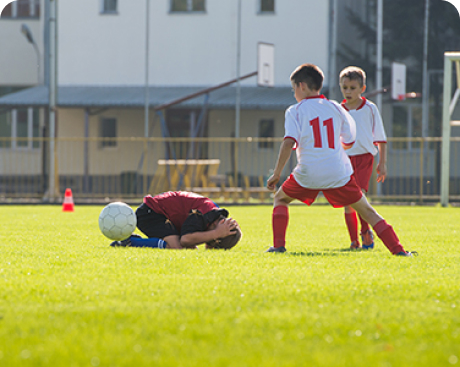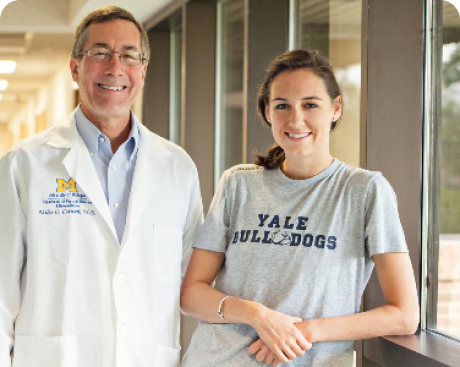Kaitlin Nini’s life was changed following a car accident which left her concussed. The following days and months became a blur of revolving doctors, dealing with symptoms, and trying to find the right treatment. Almost two years after the concussion, Kaitlin still deals with the ups and downs of recovery but is able to stay positive thanks to the strong support system around her. Below, Kaitlin shares her Inspiring Story with CLF so others know they are not alone and there is always help available.
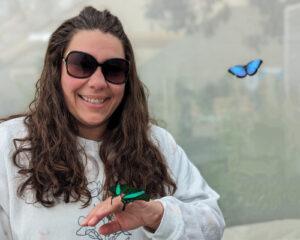
Warning: This story contains mentions of suicide that may be triggering to some readers.
“Concussion” is more than just a word or diagnosis to me. Concussions have become life-altering events, not just affecting me but all those around me. I’ve experienced three throughout my life: the first when I was 4 years old, the second at 32, and the last at 33. The concussion at age 32 changed everything in the blink of an eye.
My husband, daughter, and I were on vacation in the Smoky Mountains when out of nowhere, a tree fell on our car and landed just above my head. The accident totaled both our car and my brain, or so it felt. I sustained a concussion and blacked out for a bit. As I sat there covered in glass, my heart and head pounding, little did I know what was to come.
Miraculously, my husband and daughter did not have a scratch on them! I’m still haunted by the events of that day and thinking how close I was to death. The three of us were lucky and blessed to be alive.
The medical treatment I received became the first of many obstacles in my recovery journey. After the accident, I went to urgent care when my neck pain worsened. I was diagnosed with whiplash, received a recommendation for physical therapy, and orders to follow up with my primary care doctor when we returned home. No mention of concussion.
I attended multiple appointments with my doctor, completed CT scans and X-rays, and began physical therapy before I received the concussion diagnosis. At that last appointment, I was told, “Don’t use your brain for two weeks and rest. You’ll be better in two months.” That statement left me confused – how was I supposed to not use my brain?
I wasn’t better in two months. I began to get incredibly frustrated. There’s only so much coloring and children’s shows I could take, having been used to a very active lifestyle.
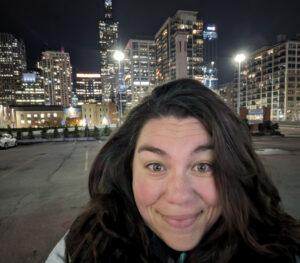
I’ve experienced a variety of symptoms including headaches, dizziness, vision difficulties, sensitivity to light and sound, insomnia, cognitive problems, anxiety, neurofatigue, depression, and irritability. Even 18 months after my accident, regular life activities like working, driving, showering, and talking on the phone are difficult.
Things took a positive turn about four months after the accident when I began concussion therapy. I felt heard, understood, and hopeful. It’s one of the scariest feelings in the world to feel imprisoned in your brain. My concussion specialist created an individualized program to heal my cognitive deficits, balance challenges, vestibular system, vision challenges, and so much more.
This therapy also helps my husband and daughter with education, validation, and support. A concussion diagnosis doesn’t affect just the individual, but his or her loved ones as well.
Still, progress has been slow and frustrating. I was a high-achieving perfectionist but now have to rely on others just to get through the day. Asking for and accepting help became a barrier to my recovery. Half the time I wanted to protect everyone from the reality of this roller coaster I was on, and the other half I couldn’t find the words to communicate what I needed.
One of the toughest parts of concussion recovery is that it’s not linear. The ups and downs are intense and always changing. I struggle with the uncertainty of symptoms from day to day. We celebrated wins every time, even if sometimes I could only see the abilities that were taken from me. The highs were great, the lows were very scary.
Almost a year after the accident, life stressors were piling up and I was unable to process trauma. Everything just sat on me like pond scum. My family had experienced nine deaths so far that year, including my grandmother. Because of depth perception difficulties, I ended up back at urgent care after cutting my finger. This incident temporarily relieved my symptoms, which was the first break I had since my original injury.
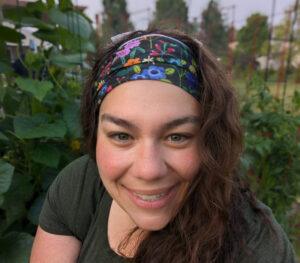
Unfortunately, this set me on a path of chronic self-harm, resulting in addiction. I had no control over the inhibitory/impulse center of my brain and I soon learned how dangerous that can be.
Not long after that, I fell on ice and was diagnosed with another concussion. This intensified all my symptoms and, due to unforeseen circumstances, my therapies paused around the same time. The gains I’d made quickly regressed, hopelessness crept in, and I struggled with suicidal behaviors.
It felt like someone else was in control of me. I love my life and would never want to leave my family and friends. However, my brain was telling me this was the only way to protect them.
As my cognitive symptoms worsened, the thoughts became stronger. This led to two suicide attempts and a realization of the inner work I needed to do to recover. My support system never wavered and didn’t give up on me, even when I gave up on myself.
I hesitated to reach out to others because I craved normalcy. I didn’t want my concussion to define me, and I wanted to protect all my family and friends. Eventually, this came to be one of the most important lessons of my recovery … asking for help.
My incredible support system – my husband, daughter, and friends – continues to guide me throughout this journey. I’ve seen a litany of providers, including a concussion specialist, mental health and physical therapists, a chiropractor, medical doctors, a wellness coach, and speech therapists.
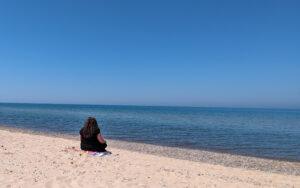
Eighteen months after the accident, I’ve gained full range of motion in my neck, my balance has improved, the brain fog is gone (most days), my convergence and eye tracking have improved greatly, and my tunnel vision is gone. I’m grateful that I’m able to work again and that my long-term memory wasn’t impacted.
Emotionally, I’m also feeling better as I process through the trauma and learn the many coping skills I lost. I still have hard days, dark feelings, headaches, vision challenges, and intense emotions. But I also have hope, unconditional love, and more moments of light. The constant ups and downs are tough and exhausting, but it also has been a great lesson in how dark and painful moments won’t last forever.
I have felt so alone in my recovery despite NEVER being alone. My hope in sharing this story is that someone will be able to relate and not feel stuck in the dark places brain injuries can take us. The best advice I have is to not give up, keep asking questions, let those who love you help you, and do not forget: this is not forever.
_______________________________________
If you are concerned that someone in your life may be suicidal, the five #BeThe1To steps are simple actions anyone can take to help someone in crisis. If you are struggling to cope and would like some emotional support, call the Suicide & Crisis Lifeline at 988 to connect with a trained counselor. It’s free, confidential, and available to everyone in the United States. You do not have to be suicidal to call.
Are you or someone you know struggling with lingering concussion symptoms? We support patients and families through the CLF HelpLine, providing personalized help to those struggling with the outcomes of brain injury. Submit your request today and a dedicated member of the Concussion Legacy Foundation team will be happy to assist you.
